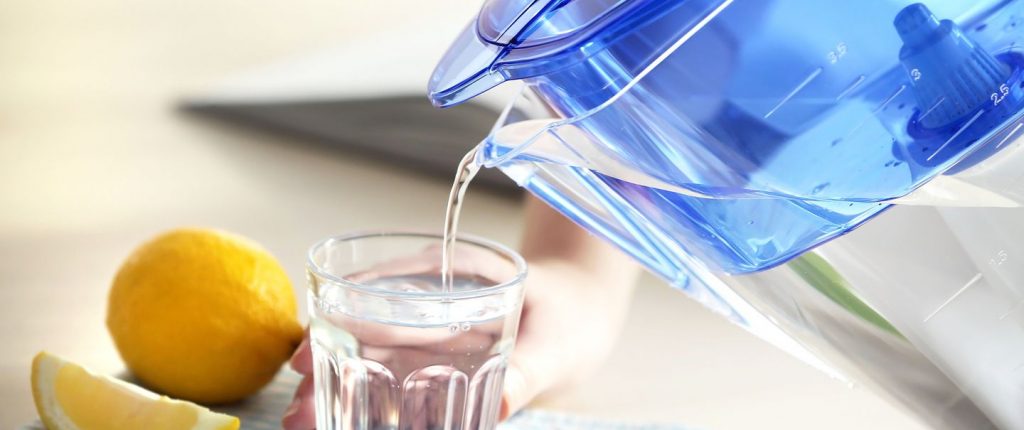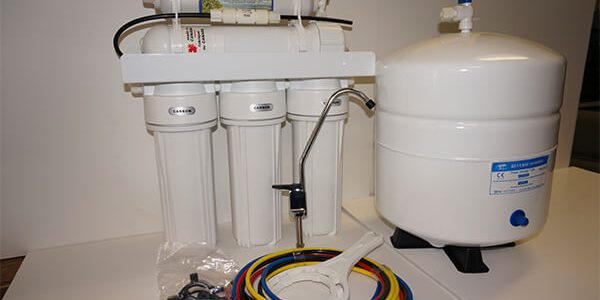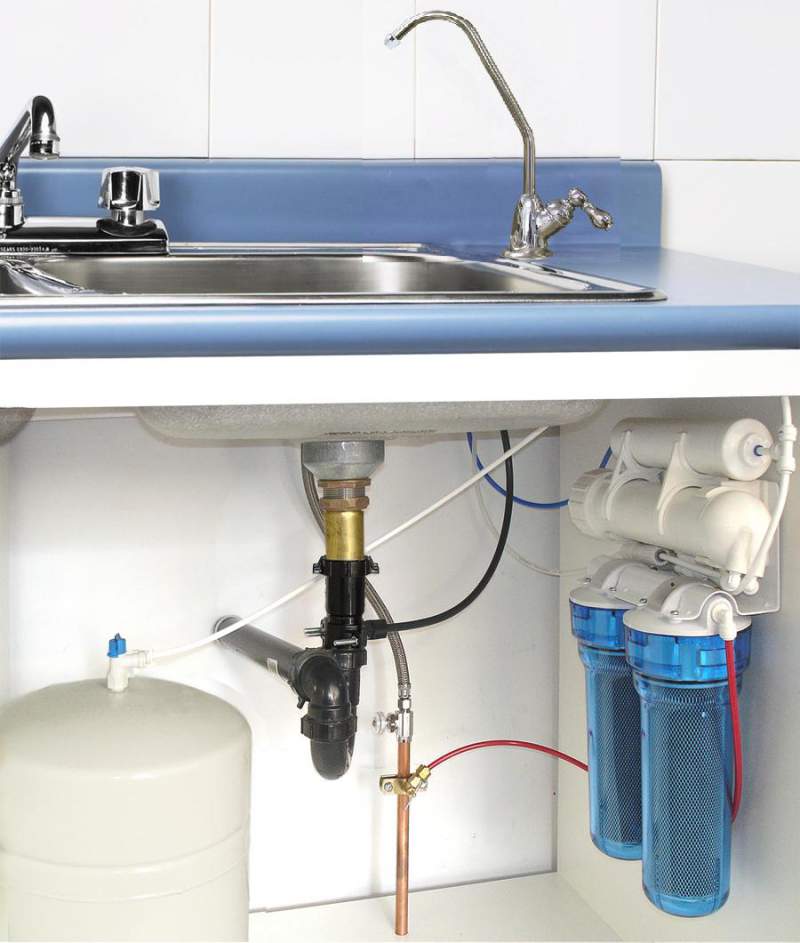Such systems are mainly installed in catering facilities, health care centres, educational institutions and small enterprises where there is a hanging need for additional treatment of tap water. If you are looking for a reverse osmosis water filtration system installation for such an establishment, it is worth looking for professional companies that do this. Unlike reverse osmosis systems used in the home, they differ in some design features:
- These designs use two or more membranes, rather than one, which are involved in the filtration process. These are Filmtec membranes with twice the capacity (100 GPD as opposed to household membranes with 50 GPD, in other words, in commercial devices water is purified through the membranes 2.5 times faster);
- Reverse osmosis devices are supplied without a drinking tap. The fact that the connection of such devices is often made directly to the source of water consumption – to coffee machines, ice generators, water bottling machines, etc., which makes the presence of a drinking tap unnecessary and unnecessary option. But if necessary, you can buy and install this tap;
- A pump that raises the water pressure is always included with the delivery. This is necessary to ensure that the necessary amount of water is supplied to the reverse osmosis system and to maintain the device’s high performance;
- The storage tank is also not included in the scope of delivery. Customers buy the tank of the required volume separately, based on the specific production and the need for purified water;
- A special connector is installed in the treated water inlet to allow a larger cross-section of the pipe to be connected, thus increasing water flow.

Industrial reverse osmosis systems
Such devices are used at large enterprises, where the production process is directly related to the increased requirements of water treatment. They can be various companies producing bottled drinks, food and pharmaceutical production, enterprises producing microelectronic products and others. In dry regions, reverse osmosis devices with highly selective membranes are used for seawater desalination. Such units can provide fresh water to an entire city.
What distinguishes industrial reverse osmosis systems from commercial and domestic filters is that they are not inherently products ready for connection and use immediately after purchase. They are complex designs that include a number of high-tech components and require careful adjustment before they can be started. The industrial devices are equipped with a number of large industrial-use membranes that are fixed to a stainless steel frame, high-performance pumping stations and automation systems that monitor the cleaning process and control the entire reverse osmosis system, including the process of periodic washing of the membranes.

The high productivity of such RO devices is ensured by a number of large industrial membranes (from 2 to 96), reaching several meters in size. Reverse osmosis system in its assembled form can occupy an area equal to that of a gym. Industrial reverse osmosis systems are created according to a pre-designed project, which takes into account the customer’s needs and the specifics of the production processes. Then, on the basis of data obtained after water analysis, a pre-treatment design (in commercial and domestic appliances, it is a standard scheme with three pre-filtration stages) is collected, which includes a variety of treatment stages with different composition and properties.
At the final stage of assembly the final filtration stage is assembled, which connects the reverse osmosis system with the customer’s process line. If you need advice on which filter is best for you, it is best to contact the water filter company in Brooklyn.



